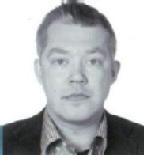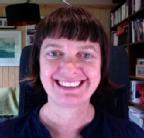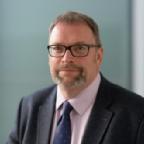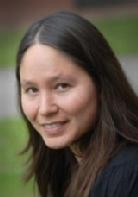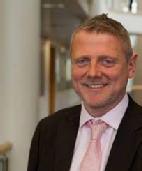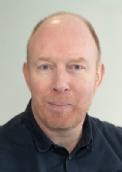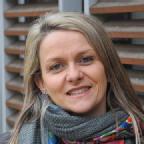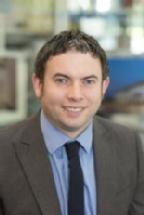University of Warwick COP26 researchers and academics: media pack
UNIVERSITY OF WARWICK
COP26 RESEARCH AND ACADEMIC EXPERTS
|
Name and Role |
Attendance Day/s |
COP26 Agenda alignment (linked to attendance) |
Biography |
Hope for COP26 |
|
Member of Governing Council at the University of Warwick |
Week 1 |
· Land use |
Adrian was Head of Planning at British Land from 1996 to 2019, and also led on Corporate Responsibility and Public Affairs for much of that time. Before that he worked in the public sector, at the London Borough of Hammersmith and Fulham, the London Docklands Development Corporation and, as Head of Planning, at Dartford Borough Council. He was a member of the Barker Review of Land Use Planning Panel of Experts and led the Government’s Independent Penfold Review of Non-Planning Consents which reported in July 2010. He was a Commissioner on the Building Better Building Beautiful Commission and is now a member of the Transitional Board of the Office for Place. He was non-executive Chair of Design South East from 2014 to 2020 and is a member of the Governing Council, and Chair of the Estates and Environment Committee at the University of Warwick. |
I hope to learn more about the global challenges we face if we are to achieve our carbon targets, and mitigate and adapt to climate change. I particularly want to increase my understanding of how a university like Warwick, with its research expertise and strong links to industry, can develop the work it is already doing to promote real solutions to the climate issues we face. |
|
Associate Professor of Chemical Engineering
School of Engineering at the University of Warwick
|
Week 1 |
· Energy
|
Volkan is the co-director of the innovative interdisciplinary MSc Humanitarian Engineering at Warwick and an Associate Professor of Chemical Engineering at Warwick. His work is focused on sustainable production of high-volume chemicals from renewables. Over the past 10 years, he researched on the transformation of plant biomass into platform chemicals for establishing the safe, sustainable, and circular chemical industry of the future. He developed novel catalytic systems to achieve the selective conversion of biomass to biochemicals and biofuels which form the basis for a biorefinery. Volkan is passionate about embedding sustainability in teaching. |
Fixing few commodities in our lives would not be sufficient to fix our climate problem. To reach our net zero emissions goal, not only our cars but everything should move to net zero approach. In COP26, I want to discuss and emphasize the importance of a holistic approach and adopting circular economy principles in all aspects of our lives. |
|
Sustainability Champion - Estates
Environmental Sustainability Team/Estates at the University of Warwick |
Weeks 1 and 2 |
· Youth and Public Empowerment · Energy · Transport · Cities, Region and Built Environment · Nature · Circular Economy |
David Chapman has worked in the sustainability sector for a decade. He graduated Swansea University with a BSc Geography and worked in the charity sector supporting people in fuel poverty until entering his current role as Sustainability Champion (Waste and Recycling) at the University of Warwick. Within this role he takes a holistic view of sustainability.
David is a Domestic Energy Assessor, Climate Reality Leader, Climate KIC Alumni, the co-founder of Green Week across Coventry and Warwickshire, and champion of numerous initiatives both on and off campus. |
My hope is that I will be witness to Governments from across the world taking a stronger stand on climate change. Currently global policies put us at nearly double the recommended temperature that climate scientists have suggested, putting humanity in grave danger of extinction.
I look forward to engaging with those going to COP 26; forging and supporting networks for the University of Warwick to increase our positive impacts. |
|
Senior Teaching Fellow and Deputy Head of the School for Cross-faculty Studies (Global Sustainable Development)
|
Week 1 |
· Water and Oceans and Coastal Zones · Nature
|
Jess Savage is a senior teaching fellow and deputy head of school in Global Sustainable Development at the University of Warwick. Her research and teaching interests centre on understanding biodiversity loss, exploring the consequences and impacts of climate and environmental change while critically integrating the ‘human element’.
Dr. Savage has a PhD in Marine Biology and Coastal Ecology from the University of Plymouth, and an MSc in Biodiversity Conservation from the University of Southampton. Her doctoral work explored the design of Marine Protected Areas in coastal Cambodia. Prior to joining Warwick in 2017, she taught Tropical Coastal Ecology at The School for Field Studies in Bocas Del Toro, Panama. |
Being an observer at COP26 offers a unique opportunity to experience how the global community, respond to challenges such as Climate Change. I hope to witness a change in the tide of our current approaches to managing climate change.
Moreover, I look forward to both the opportunity to share the work of Warwick’s staff and students with a global audience, and to bringing back lessons from COP 26 to enrich our students learning.
|
|
Professor of English and Comparative Literature Studies
Department of English and Comparative Literary Studies at the University of Warwick
|
Week 1 |
· Energy · Youth and Public Empowerment |
Graeme has been member of the Warwick English department since 2003. His research and teaching is focussed on the intersections between cultural work, energy and climate change. He has a particular interest in the ways in which speculative imaginaries of energy and climate futures offer means to better realise the issues and forms around a just transition.
He is a member of the international Petrocultures Research Group and the After Oil school. He was CI on the Royal Society of Edinburgh Humanities research project Connecting with a low carbon Scotland, which reported in 2018. Since 2018, he has been CI on the FORMAS funded international research project Climaginaries: narrating socio-cultural transitions to a post-fossil society. He is curating and exhibiting the Climaginaries Carbon Ruins museum project at the Green Zone and in the Rachel Carson Centre gallery space at COP26. |
Is it too much to ask for “Glasgow” to have the resonance “Paris” has, which is to say: for genuine movement and firm markers towards real progress? I hope to learn more about the multiple issues around Energy and witness what the various cultural energies on and offsite have to offer towards mitigation and a just transition. |
|
Reader (Associate Professor) in Media and Communications
Centre for Cultural and Media Policy Studies, at the University of Warwick
|
Week 1 |
· Youth and Public Empowerment |
Pietari Kaapa is Reader in Media and Communications at the University of Warwick. He works in the field of environmental media studies with a specific focus on media management and industry studies.
His monograph Environmental Management of the Media: Industry, Policy, Practice (Routledge 2018) explores the ecological footprint of media production and the policies and strategies developed in the media sector to curtail these impacts.
He is PI (with Hunter Vaughan, University of Colorado Boulder) of the AHRC Global Green Media Network (www.globalgreenmedianetwork.com) and is currently working on A Greener Screen: film and Television Production in the Age of the Climate Emergency (Palgrave, 2022) with Vaughan. |
COP26 provides a major opportunity to explore new developments and innovations in sustainability and emissions reduction within a multitude of sectors. Such multi-disciplinary work is vital for my research which focuses on green media production.
In this work, I integrate technological, financial, cultural, and social perspectives to develop new approaches to enhancing green media infrastructure and practice. Accordingly, my participation at COP26 allows me to develop and enhance connections between the AHRC Network and a wide variety of stakeholders. |
|
Assistant Professor
School of Modern Languages and Cultures at the University of Warwick 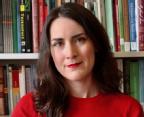 |
Week 1 |
· Nature · Youth and Public Empowerment |
Elizabeth Chant is Assistant Professor in Hispanic Studies at the University of Warwick, and a Visiting Fellow at the Institute of Modern Languages Research, University of London. She is a specialist in Latin American environmental humanities with a focus on Argentinean and Chilean history and culture. Liz’s current research is investigating how the development of nature tourism has facilitated acts of extraction and indigenous dispossession across Argentina, Chile, and the U.S. At Warwick, Liz teaches courses on cultural representations of water in Latin America, and on ecocriticism. She previously studied at the Universities of Durham, Cambridge, and UCL. |
One of the key issues I study as an environmental humanities scholar is how historical relationships with nature have enabled climate breakdown. COP26 offers the unique opportunity to witness how culture, science, and politics are all intertwined in this problematic, and to reflect upon how they must also provide us with the solutions. I am particularly looking forward to the insights that will be offered by indigenous knowledge practitioners at the event and hope to learn from delegations that are seeking sustainable heritage, travel and tourism solutions. |
|
Associate Professor in Politics and International Studies
Department of Politics and International Studies at the University of Warwick
|
Week 1 |
· Finance · Energy |
Dr Caroline Kuzemko has been researching the politics of sustainable energy transformations for past 14 years and is Co-Lead of the UK Energy Research Centre's 'UK Energy in a Global Context' project. She has written books on 'The Global Energy Challenge', and on 'The Energy Security-Climate Nexus’ and has edited a journal special issue on 'Rethinking the International Political Economy of Energy'.
Prior to her academic career, Caroline was a Director of UBS, working in emerging market equities. |
In attending COP26 I hope to learn more about how delegations are approaching climate change at this crucial moment, especially fossil fuel exporting countries, and about the key political issues and how they might be overcome. I also hope to engage with organisations, third sector or government, to share my research, and to learn from them. |
|
Professor of Global Energy
Warwick Business School at the University of Warwick
|
Week 1 |
· Finance · Energy |
Michael Bradshaw is a Co-Director of the UK Energy Research Centre (UKERC) where he leads a research theme on UK Energy in a Global Context. Professor Bradshaw also leads the University of Warwick’s Global Research Priority on Energy and teaches on ‘Managing Sustainable Energy Transitions’ for Warwick Business School’s MBA programme.
He is a geographer by training and works at the interface between economic geography, international relations and strategy and international business. He is currently working on the geopolitics of energy system transformation and is continuing his work on global gas security, both for UKERC.
He is author of Global Energy Dilemmas (2014) that explored the relationship between energy security, globalization, and climate change. The co-editor of Global Energy: Issues, Potentials and Policy Implications (2015), and Natural Gas (2020) that explores the geopolitical economy of the global gas industry. |
I am hoping to see an appreciation that the energy and climate challenges that countries face vary across the globe in terms of origin, scale, and scope and that this needs to be recognized in reaching a global consensus on the best way to accelerate progress towards meeting the goals of the Paris Agreement.
In short, when it comes to energy and climate change, geography matters when it comes to energy and climate change, geography matters! |
|
Executive Chair
WMG at the University of Warwick
|
Week 2 |
· Industry · Transport · Cities, Region and Built Environment · Land use |
Margot James is the Executive Chair of WMG at the University of Warwick. She has had a wide-ranging career which has spanned working for the UK Government and as a businesswoman. Both in business and Government, Margot has championed the need to expand opportunities for diverse groups of young people.
Margot served as Minister of State for the Department for Digital, Culture, Media, and Sport, with responsibility for Digital, Telecoms and the Creative Industries, piloting the Data Protection Bill through Parliament, incorporating GDPR into UK law. Previously she served as Parliamentary Under-Secretary of State at the Department for Business, Energy, and Industrial Strategy, with responsibility for small businesses, consumers and corporate governance, including labour markets.
Margot co-founded Shire Health Group and led its growth to over 100 staff, having created a market for industry sponsored public health campaigns. She led the successful transitioning of Shire Health Group to the multinational WPP in 2000. She served on the Europe, Middle East and Africa Board of Ogilvy Mather, leading European healthcare programmes. |
We’ve all got huge hopes for COP26. It’s a real privilege that Britain is hosting it this year. I’d like to see a greater urgency to resolving the climate change crisis and to see real policies that are executable on the back of targets that Britain takes the lead on.
The role of universities is crucial and I’m really proud that the University of Warwick secured Observer Status at COP26. |
|
Professor of Sociology
Department of Sociology at the University of Warwick
|
Week 2 |
· Adaptation, Loss and Damage · Cities, Regions and Built Environment · Land use
|
Alice Mah is Professor of Sociology at the University of Warwick, with research interests in environmental justice, corporate power, and the politics of green industrial transformations. She is the author of Plastic Unlimited: How Corporations are Fuelling the Ecological Crisis and What We Can Do About It (forthcoming with Polity Press in 2022); Toxic Truths: Environmental Justice and Citizen Science in a Post-Truth Age (with Thom Davies, 2020); Port Cities and Global Legacies (2014); and Industrial Ruination, Community, and Place (2012).
Her next book, Petrochemical Planet: Multiscalar Battles of Industrial Transformation, based on research from her European Research Council-funded project “Toxic Expertise: Environmental Justice and the Global Petrochemical Industry,” will be published by Duke University Press. |
The COP26 is a critical summit for urgent global action to tackle the climate emergency. As an environmental sociologist, I am excited at the opportunity to observe these important negotiations and will be paying close attention to discussions on climate justice, climate finance for mitigation and adaptation, controversial carbon markets, and systemic global social inequalities.
I look forward to sharing my observations with my students and colleagues through my teaching and research at Warwick on ecological crisis, decarbonisation, and just transformations. |
|
Deputy Pro-Vice Chancellor (Research) at the University of Warwick and Chair of Sustainable Manufacturing and Materials group at WMG
|
Week 2 |
· Finance · Industry · Cities, Region and Built Environment |
Kerry Kirwan is a Deputy Pro-Vice Chancellor (Research) for the University of Warwick, a Trustee of The Alan Turing Institute and a Professor at WMG. He is the Director of the £11m EPSRC Centre for Doctoral Training in Sustainable Materials and Manufacturing (EngD), Strategic Director of the £10m Industrial Doctorate Centre and Head of the Sustainable Materials and Manufacturing Research Group within WMG. Prof Kirwan also leads the University of Warwick's Global Research Priority in Innovative Manufacturing and Future Materials. Previously he was a member of the EPSRC's Manufacturing the Future Strategic Advisory Team.
Prof Kirwan is a specialist in circular economy, sustainable materials, polymer processing and industrial applications. He has extensive experience of developing environmentally friendly materials for application within numerous industries and secured in excess of £35m of research funding from both public and private bodies. |
I’m looking forward to seeing and hearing all the latest efforts that are going on around the world – in particular, the work that is looking to improve both social and environmental impacts at local and regional levels. It would be good to make new contacts that my team can collaborate with moving forward after the initial COP26 events. |
|
Professor in Microbiology
School of Life Sciences at the University of Warwick
|
Week 2 |
· Nature · Adaptation, Loss and Damage · Land use |
Hendrik's work is focussing on improving our understanding of how unseen and ubiquitous microorganisms in the environment turn the wheels of major biogeochemical cycles that have a profound impact on the earth system and its climate. Microorganisms in the world’s oceans, soils, and in association with vegetation are responsible for the production and degradation of trace gasses which have significant effects on the chemistry of the atmosphere and some also affect human health as pollutants. For instance, the organic sulfur compound dimethyl sulfide (DMS), is the most abundant biogenic sulfur compound emitted into the atmosphere where it contributes to the production of atmospheric aerosols, small particles that help to form clouds and which scatter and reflect sunlight, thus affecting the radiative balance of the atmosphere. DMS, which is sometimes referred to as the smell of the sea, is produced and degraded by microorganisms which therefore play a role in climate feedbacks. In his laboratory, he studies the underlying mechanisms of DMS production and degradation by microorganisms which provides important data to investigate how their activities in the environment may interact with climate change. As part of the MOSAiC international arctic ice drift expedition, the team is currently involved in characterising DMS cycling microorganisms in the Arctic. Another example of our work on trace gas degrading microorganisms concerns bacteria associated with trees and how they interact with air pollution. They recently discovered that a large fraction of bacteria colonising tree leaves may be capable of degradation of carbon monoxide a ubiquitous trace gas and air pollutant affecting human health. The aim of the research is to contribute to a better understanding of how these microorganisms are driving these fundamental global processes that are relevant for climate and human health. |
The climate emergency is the single most important issue facing humanity.
The consequences of the warming climate are beginning to play out before our eyes with 2021 being a stark warning that our understanding of the climate system is woefully underdeveloped as is illustrated by unprecedented natural disasters the scale of which seems to take even some climate scientists by surprise.
The consequences for the natural biological systems, the functioning of the global economy, as well as geopolitical and social impacts are hard to predict. As a teacher (course leader of MSc Environmental Bioscience in a Changing Climate), I consider the communication of these issues to the next generations of students and scientists as well to the general public as a key priority.
As a researcher, I want to learn from affected communities and the public what I can do in this capacity to help deal with this crisis. I also want to continue contributing to a better understanding of the complex natural systems and how they function in a changing environment. Attending COP26 will provide a unique opportunity to witness how delegates from all nations of the world are negotiating in an attempt to find solutions to this existential crisis.
|
|
Associate Professor and Director of Graduate Studies
Department of Economics at the University of Warwick
|
Week 2 |
· Finance
|
Lory Barile is an Associate Professor in the Department of Economics at the University of Warwick, and a Fellow of the Warwick International Higher Education Academy (WIHEA).
Her expertise and research interests are in the field of Behavioural and Experimental economics, and Public Sector economics. Lory also carries out pedagogical research with particular focus on understanding engagement and online peer assisted learning and leads on the University of Warwick WIHEA learning circle on ‘Education for sustainable development’ aimed at embedding sustainability in the University curriculum, in line with the University of Warwick wider commitment to sustainability.
Lory is also an Associate of the Economics Network (EN) and is currently working with colleagues on updating the EN handbook ‘Embedding Sustainability in the Economics curriculum’, which shares examples nationally and internationally of good practice on how to teach sustainability and the economics of the environment. Lory is also a member and Deputy Director of the Behavioural Environmental Economics Team working on various projects related to nudge theory, sustainability and climate change.
Lory’s fields of expertise cover a range of COP26 issues, from understanding and promoting the role of education in climate actions, to understanding of individual behaviour, and policy making. As a Director of Graduate Studies, Lory remains passionate about sustainability within teaching and the curriculum at the University of Warwick. |
Being part of the select few institutions with observer status at such an important climate conference is a real opportunity. Every policy, discussion, and agreement have economic considerations attached. I hope the considerations translate into actions. We need definitive progress regarding our environment; researching and understanding individual and collective behaviours; and the distribution of public sector finances to help the crisis. If we want to be serious about addressing the unsustainable challenges of our present time, it is also required to reorient and strengthen the role of education, as well as our role, as educators, in building more just, sustainable, and peaceful communities. Therefore, beyond that, I hope that attending COP26 will be an opportunity to learn something new, and bring back new ideas, lessons and talking points to the lecture theatres and seminar rooms of Warwick.
|
|
Research Fellow split between the Sustainable Materials Group in WMG and the Clark Research Group in the Department of Chemistry at the University of Warwick
|
Week 2 |
· Transport · Industry |
Dr Stuart Coles is Reader of Sustainable Materials and Manufacturing at WMG, University of Warwick. Stuart has been researching in this area for over 15 years and is focused on the understanding and implementation of sustainable materials and manufacturing processes within industry. Specifically, he looks at the use of life cycle assessment (LCA) as a decision-making tool to enable the transition to a low carbon economy.
Current areas of research activity include developing assessments of the environmental footprint of lithium-ion batteries across their entire life cycle and a range of battery chemistries and the construction of LCA models for the chemical recycling of plastic materials, including comparisons with other recycling technologies enabling decisions for how best to deal with mixed plastic waste streams. |
Life cycle assessment allows us to calculate whether we are solving a problem or simply shifting a burden up or down the supply chain for someone else to deal with. Understanding the true impact of our decisions on our climate is a vital part of ensuring that we transition smoothly towards a net-zero economy.
I’d like to understand more about what the countries are planning in terms of transparency of transportation emissions. A lot of the work we do is based around understanding the carbon footprint of electric vehicles, and there is a conflicting information currently published due to differing data sets, varied assumptions and assessments with inconsistent scopes. With legislation looking like it’s going to enforce some kind of statement in terms of battery environmental footprint, how can academia, industry, and legislators across the world work together to ensure that information is being shared effectively and progress can be achieved. |
|
Director of Transport and Future Mobility and Director of Sustainability at the University of Warwick
|
Wednesday, 10th November |
· Transport
|
Parvez has been responsible for the Mobility strategy at the University for the past two years, working with local and regional partners to create positive modal shift and improve regional transport infrastructure. He has established a Future Transport Zone (FTZ) showcase in conjunction with Transport for West Midlands as part of his drive towards creating more sustainable transport options on campus, including Demand Response Transport (DRT), cycle hire and e-scooters to name a few.
Previously, he had a similar role at London Luton Airport working as part of the Airport Masterplan to help deliver the Transport strategy, in particular help the drive towards shared mobility from a passenger commute perspective.
His vision at Warwick is to achieve a sustainable transport network whereby both staff and students not only have the options and alternatives available for them to utilise, but they also have the tools and resources to make more informed decisions when it comes to acting sustainably. Hence, his primary focus is to delivery operationally overall energy consumption reduction and the embodiment of sustainability in day-to-day lives to tackle our carbon footprint. |
I hope to better understand how we can collectively, as a global community, work together to create a more sustainable world and learn more about how we can reduce our carbon emissions as an organisation.
As a University, I am keen to see how organisations such as ourselves can collaboratively test and evaluate sustainable pilots and trials to help develop real-world solutions to help tackle climate change. |
Contact Details
If you would like to speak to any of the University of Warwick delegates, or alternative spokespeople during COP26, please use the following contact information:
- PLMR: warwickcop26@plmr.co.uk
- Will Savage for general enquires, will.savage@plmr.co.uk or 07496 675 302
- Brett Waldron for general enquiries, brett.waldron@plmr.co.uk or 07963 327646
Or alternatively,
- University of Warwick Press Office: press@warwick.ac.uk
- Andrea Cullis, Features Writer and Media Relations Manager – a.cullis@warwick.ac.uk or 07825 314874
Contact Details
If you would like to speak to any of the University of Warwick delegates, or alternative spokespeople during COP26, please use the following contact information:
- PLMR: warwickcop26@plmr.co.uk
- Will Savage for general enquires, will.savage@plmr.co.uk or 07496 675 302
- Brett Waldron for general enquiries, brett.waldron@plmr.co.uk or 07963 327646
Or alternatively,
- University of Warwick Press Office: press@warwick.ac.uk

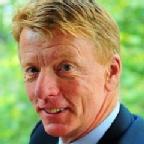


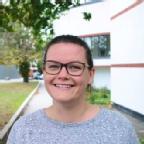 School for Cross-faculty Studies (Global Sustainable Development) at the University of Warwick
School for Cross-faculty Studies (Global Sustainable Development) at the University of Warwick 
